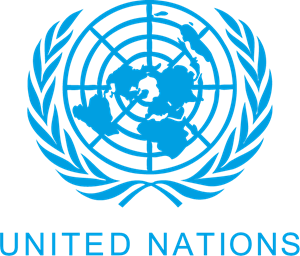
Programme Associate
- Nairobi
- Permanent
- Full-time
1.Support member states and private sector to develop, replicate and scale up solutions to address wastewater and nutrient pollution to measurably reduce related methane and nitrous oxide emissions for the health of the environment and people, including the recovery of energy and nutrients from wastewater
2.Support the implementation of UNEP activities related to wastewater and climate.
3.Assist member states and relevant stakeholders in developing and implementing data-informed policies aimed at reducing methane and nitrous oxide emissions from wastewater treatment processes for environmental and public health, while also promoting the integration of wastewater surveillance systems.
4.Support member states on strengthening policy regulations on wastewater and wastewater surveillance as part of climate mitigation measures, in alignment with One Health approaches that recognize the interconnectedness of human, animal, and environmental health.
5.Raise awareness and implement capacity development activities on the contribution of wastewater treatment processes to global methane emissions and untapped opportunities for resource recovery and inclusion in the NDCs 3.0, while also high-lighting the role of wastewater surveillance in pandemic prevention and response, especially in Africa.
6.Identify the needs among member states and other stakeholders to guide action on preventing the degradation of freshwater and marine ecosystems, including from wastewater and nutrients for environment and public health with direct effect on climate agenda, and global health security.
7.Disseminate among member states and other stakeholders, environmental socio-economic assessment tools and methodologies to guide action on accelerating the recovery of methane, and other by-products from wastewater especially to under-stand and tackle its effects on the climate, health of the environment and people
8.Provide advice on the potential of wastewater treatment reuse systems to achieve low- or low-cost emission reduction for environment and public health
9.Support resource mobilization efforts for key activities under the SSPU ProDocs, including mapping potential donors, gathering intelligence and drafting Concept Proposals or full projects.
10.Maintain close links to the Global Methane Initiative (GMI) Wastewater Working Group, including updates to website content under CCAC
11.Supports the development, publication and outreach of a CCAC-TEAP (Technology and Economic Assessment Panel) report on innovative and effective technologies and investments which mitigate wastewater emissions.
12.Deliver specialized services to the Global Wastewater Initiative, Global Methane Pledge and the Source to Sea Pollution Unit regarding the object of this consultancy.
13.Include gender, inclusion and just transition considerations on all duties listed above.
14.Undertakes other related tasks, when assigned.Furthermore, UN Volunteers are required to:
- Strengthen their knowledge and understanding of the concept of volunteerism by reading relevant UNV and external publications and take active part in UNV activities (for in-stance in events that mark International Volunteer Day);
- Be acquainted with and build on traditional and/or local forms of volunteerism in the host country.
- Reflect on the type and quality of voluntary action that they are undertaking, including participation in ongoing reflection activities;
- Contribute articles/write-ups on field experiences and submit them for UNV publications/websites, newsletters, press releases, etc.;
- Assist with the UNV Buddy Programme for newly-arrived UN Volunteers;
- Promote or advise local groups in the use of online volunteering or encourage relevant local individuals and organizations to use the UNV Online Volunteering service whenever technically possible.
- 3 years of professional work experience at the national and/or international level in the field of wastewater management, climate mitigation, GHGs emissions and Methene/Nitrous Oxide related issues.
- Excellent oral and written skills; excellent drafting, formulation, reporting skills;
- Accuracy and professionalism in document production and editing;
- Excellent interpersonal skills; culturally and socially sensitive; ability to work inclusively and collaboratively with a range of partners, including grassroots community members, religious and youth organizations, and authorities at different levels; familiarity with tools and approaches of communications for development;
- Ability to work and adapt professionally and effectively in a challenging environment; ability to work effectively in a multicultural team of international and national personnel;
- Solid overall computer literacy, including proficiency in various MS Office applications (Excel, Word, etc.) and email/internet; familiarity with database management; and office technology equipment;
- Self-motivated, ability to work with minimum supervision; ability to work with tight deadlines;
- Sound security awareness;
- Demonstrate commitment and interest in sustainable wastewater management and mitigation of GHGs from wastewater, especially methane, volunteerism as a mechanism for sustainable development, and commitment to work across the UN System.
Adaptability and Flexibility
Building Trust
Client Orientation
Commitment and Motivation
Commitment to Continuous Learning
Communication
Creativity
Ethics and Values
Integrity
Judgement and Decision-making
Knowledge Sharing
Planning and Organizing
Professionalism
Respect for Diversity
Self-Management
Technological Awareness
Vision
Working in TeamsArea(s) of expertise:
- Engineering and construction